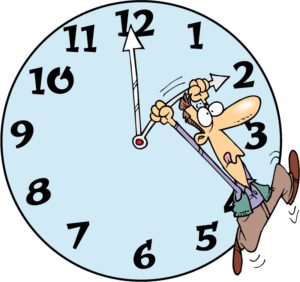UNITED STATES – March 10, 2022 – Sunday March 10th is the time to advance our clocks one hour in accordance with Daylight Saving Time and to upset our natural biologic clock. Daylight is longer in the summer and shorter in the winter the further you are from the equator. During the summer months, daylight may extend to the early morning hours when most people are still sleeping. Moving the clocks forward one hour lets us wake up in the morning when the sun rises and have an extra hour of daylight for outdoor leisure activities after the traditional workday.
Daylight Saving Time begins on the second Sunday in March at 2 am. People lose an hour of sleep during the changeover. Clocks are turned back one hour to Standard Time on the first Sunday in November in the fall. That’s when people get an extra hour of sleep. Most states follow Daylight Saving Time including North Carolina. Only Hawaii and parts of Arizona do not. Most countries in North America and Europe have adopted Daylight Saving Time during the summer months.
Our natural biologic clock is affected by changes in light and darkness. Fatigue and health problems can occur from sleep loss up to a few days after the spring time change. The body’s processes of sleep, being awake, digestion, and immune function are affected. There are more hospital admissions due to heart attacks, strokes and irregular heartbeat. Other health problems include more fatal car accidents, mood swings and seasonal depression.
A person will better adjust to a new light/dark cycle by minimizing changes to their day/night rhythm. Some suggestions are to go to bed earlier for a few days before the changeover. After the time change, get some natural sun light upon waking up.
Listen to the full report below:
Contact: Dick Needleman, Health reporter, 103.3 AshevilleFM, [email protected]
More Posts for Show: Asheville FM News Hour
